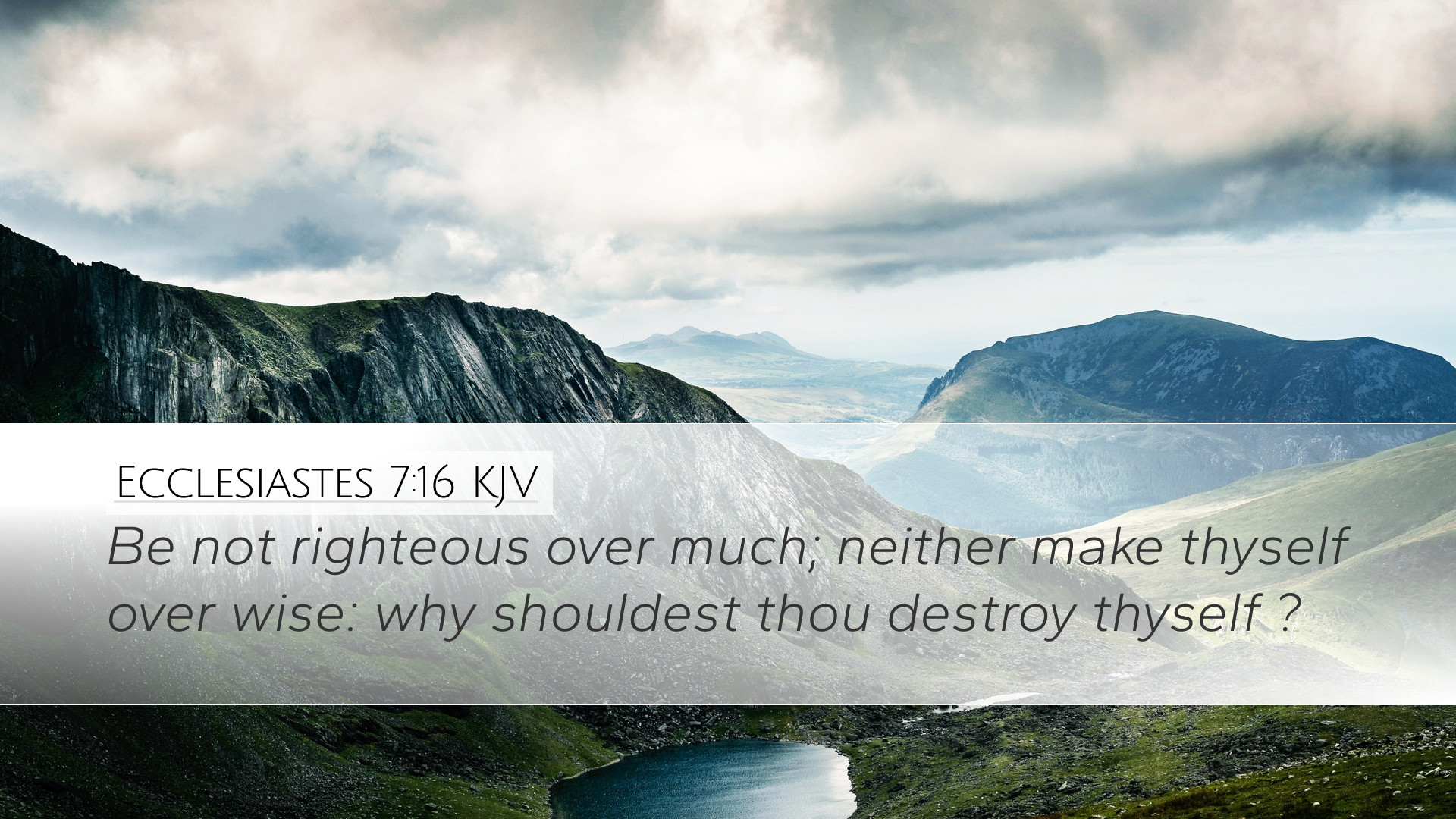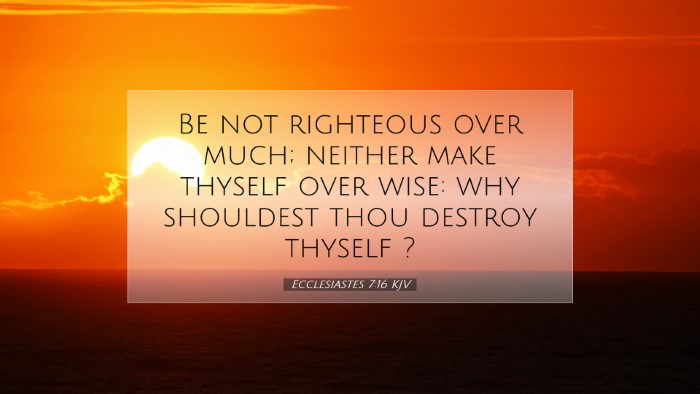Ecclesiastes 7:16 Commentary
Verse: "Be not overly righteous, and do not make yourself too wise. Why should you destroy yourself?" (Ecclesiastes 7:16 ESV)
Introduction
This verse from Ecclesiastes presents a profound paradox in wisdom literature. It challenges readers to navigate the tensions between righteousness, wisdom, and the inevitable limitations of human understanding. Insights from public domain commentaries provide an enriched perspective on this thought-provoking admonition.
Exegesis of Ecclesiastes 7:16
The author of Ecclesiastes, traditionally identified as Solomon, introduces a counterintuitive principle regarding righteousness and wisdom. This verse encapsulates the broader themes of the book: the search for meaning in a seemingly meaningless world, the futility of human striving, and the importance of humility in the pursuit of righteousness and wisdom.
1. The Meaning of "Overly Righteous"
Matthew Henry emphasizes that the call to "not be overly righteous" serves as a caution against self-righteousness. He argues that excessive zeal in one's pursuit of righteousness can lead to self-destruction. Rather than being consumed by an unattainable standard of perfection, believers should strive for a balanced life that recognizes human frailty.
2. The Danger of Self-Wisdom
Albert Barnes interprets "do not make yourself too wise" as a warning against arrogance in wisdom. He notes that an inflated sense of one's own wisdom can lead to a false sense of security, estranging individuals from God and from others. Wisdom, when not tempered by humility, can become a source of pride and isolation.
3. Balancing Righteousness and Realism
Adam Clarke suggests that this verse encourages a balanced approach to righteousness and wisdom, one that acknowledges human limitations. He posits that while believers are called to live righteously, they are also reminded of their dependency on God's grace. The call is not to abandon righteousness or wisdom but to pursue them with awareness of one’s own imperfections.
Theological Implications
Ecclesiastes 7:16 leads us to several theological reflections:
- The Nature of Humanity: This verse underscores human limitations, emphasizing that righteousness and wisdom should be pursued within the context of grace and humility.
- God's Sovereignty: It highlights the sovereignty of God over human endeavors, reminding readers that ultimate wisdom and righteousness belong to Him.
- The Community Aspect: Too much focus on one’s own righteousness can isolate individuals from the community. Genuine faith and wisdom manifest in relationships.
Practical Applications
For pastors, students, and theologians, the insights from Ecclesiastes 7:16 can manifest in practical steps:
- Emphasizing Humility: Teaching the necessity of humility in both righteousness and wisdom in pastoral settings.
- Encouraging Accountability: Creating environments where believers can hold each other accountable and recognize their human limitations.
- Integrating Grace into Teaching: Incorporating the theme of grace as central in the preaching of righteousness and wisdom.
Conclusion
Ecclesiastes 7:16 offers a striking reminder of the balance required in the pursuit of righteousness and wisdom. Through an understanding that acknowledges human limitations, both scholars and believers can navigate the complexities of life with grace and humility. By engaging deeply with this verse, the community can foster a collective journey that upholds the truth of God while recognizing our shared human experience.


